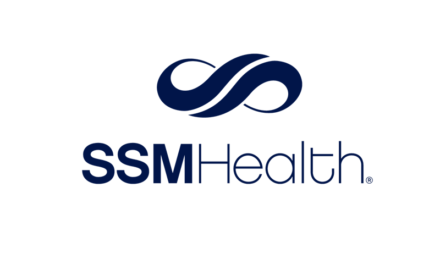
Students drive food and beverage change at UW School of Medicine and Public Health
MADISON, Wis. — The University of Wisconsin School of Medicine and Public Health (SMPH) is “following the doctor’s orders” for healthy living. Backed by 78 percent of their surveyed students. the school has overhauled its offerings of snacks and beverages, doing away with sugary drinks and snacks that don’t offer nutritional value.
“The School of Medicine and Public Health is continuously working to encourage people to make choices to improve their own wellness, and this is an opportunity for us to ‘walk the walk’ and further demonstrate our commitment to health,” said Dr. Robert N. Golden, dean of the SMPH. “We’ve made more healthy food and beverage choices readily available and easy to identify. People can still bring in their own sugary drinks and snacks if they wish, but we’re no longer going to provide those options ourselves.”
The SMPH is the first school to implement such a policy at the UW, and is one of the first medical schools in the nation to do so. The University of Michigan launched a healthy-beverage initiative in 2013, and the University of California-San Francisco launched a similar initiative in July 2015.
Based on the Healthy Food Environment assessment tool originally developed by the Centers for Disease Control and Prevention, the SMPH is adopting the My Smart Choice nutrition guidelines implemented by UW Health in October 2014.
Per the guidelines, a minimum of 60 percent of the available food and beverage options must meet the guideline’s nutritional criteria, and no more than 40 percent of beverages will contain non-nutritive sweeteners like aspartame or sucralose. Sugar-sweetened beverages like regular soda, sweetened fruit-flavored drinks, regular sports drinks, energy drinks, and sweetened coffee drinks will no longer be offered.
| My Smart Choice criteria | |
| Snacks | Caloric content: ≤ 250 calories
Saturated Fat: ≤ 2 grams Added Sugar: ≤ 7 grams Sodium: < 230 milligrams Trans fat: 0 grams |
| Beverages per 8 oz.
(must not exceed 12 oz.)
|
Caloric content: ≤ 120 calories
Saturated Fat: ≤ 2 grams Added Sugar: ≤ 0 grams Sodium: < 230 milligrams |
The effort to align the SMPH with UW Health’s policy was largely orchestrated by Cherie Wolter, who as a master of public health student also helped initiate the UW Health sugar-sweetened beverage policy in 2014.
After the hospital implemented its policy, Wolter surveyed 2,000 students at the SMPH, School of Nursing, School of Veterinary Medicine and School of Pharmacy about healthy food options. Almost 800 responded and, across the four schools surveyed, 68 percent agreed that replacing sugar-sweetened beverages with healthier alternatives is an appropriate policy for the health sciences schools.
The Daily Dose Café, the coffee shop centrally located in the SMPH, is already fully compliant with the policy for both beverages and snacks. Adjustments to vending- machine offerings in the Health Sciences Learning Center, Wisconsin Institutes for Medical Research and the Medical Foundation Centennial Building are still underway.
Wolter, now the program manager for employer health services at UW Health, credits SMPH leadership — especially Deans Golden, Elizabeth Petty, Deborah Biggs and Mark Wells — for supporting this initiative and helping make it a reality.
-end-





